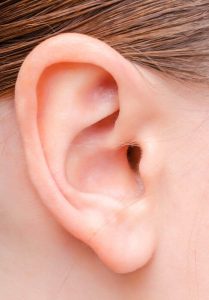 Our ears are remarkable, complex and finely-tuned systems that allow us to hear our world. But did you know they do more than simply hear? Here are eight facts about the human ear that will help you better understand and appreciate its function.
Our ears are remarkable, complex and finely-tuned systems that allow us to hear our world. But did you know they do more than simply hear? Here are eight facts about the human ear that will help you better understand and appreciate its function.
Ears Help Your Balance
Your ear plays an essential role in your sense of balance and equilibrium. Three semi-circular canals in the inner ear contain fluid that shifts when you tilt, move up and down or side to side. The shifting fluid triggers sensory hair cells that then send signals to brain about your movement and balance. In addition, there are two other sensory areas that inform your brain about vertical and horizontal movement. Congestion in the nasal passages can affect the ear fluids and sensors, which can make you feel dizzy.
Ear Bones Are Tiny
Inside your middle ear, there are three small bones that respond to sound waves by vibrating. That vibration helps send sound signals to your inner ear. These three bones are the smallest in the human body—all three can fit on a penny.
Ears Have More than 20,000 Hair Cells
Despite its small size, the cochlea portion of your ear contains a large number of hair cells. These hair cells bend and have an important role to play in the amplification and transmission of sound to your brain.
Eardrums Are Cone-shaped
Most people think of eardrums as being flat, like the skin or head of a drum. Instead, they are thin, cone-shaped membranes between the outer and middle ear and are close in size to a dime. The size doesn’t change over a lifetime—babies and adults have the same sized eardrums..
Ears Work All Night Long
Even when your sleep, your ears continue to function and process sound. But there is a significant difference in how your brain responds to the noise, depending on which stage of sleep you’re in. At certain points of deep sleep, your brain appears to tune out the external world so that normal noises don’t disrupt sleep (loud noises can jar your awake). When you’re in lighter stages of sleep, the brain responds to normal levels of noise, which could explain why even slight sounds wake you up.
Ears Are Cleaner than You Think
For many, the presence of ear wax (cerumen) is a sign the ear needs to be cleaned. Cerumen is actually the body’s way of protecting the ear canal by keeping it lubricated and preventing pollutants from reaching the inner ear. Ear wax even has antibacterial qualities. The ear’s design, combined with the act of chewing, helps move the cerumen toward the outside of the ear. In this way, the ears are self-cleaning.
Ears Can Influence Taste
The ear does not play a major role in your sense of taste the way your sense of smell does. But because nerves pass through your middle ear enroute from the tongue to the brain, the ear can influence taste. Some people who have had ear surgery or who have ear infections complain that their sense of taste has changed.
Ear Popping
When you’re in a plane, the take-off and landing can make you feel like your ears are blocked. What causes that? It has to do with pressure, air and how your ear functions. Your middle ear connects to the back of your nasal passages through the Eustachian tube. There is a constant absorption of air in the middle ear and the Eustachian tube helps resupply the air. This flow helps equalize pressure. In planes, the pressure changes are harder to keep up with and you can get that blocked feeling. Swallowing and yawning can help you equalize the pressure again by pushing air into the Eustachian tube.
Our ears are a complex with many intricate parts and it’s important to take proper care of them. If you experience ear pain or problems with your hearing, be sure to seek professional medical treatment.
Choose the Expert in Ear Infection Treatment and Hear Properly Again
Dr. Nguyen is a national Ear, Nose and Throat expert and Houston Sinus and Allergy has more than a decade of experience in treating ear infections. We use the latest technology and vast experience to reduce pain and prevent other long-term effects caused by ear infections.
You can reach us by calling (832) 237-7777, or fill out the form at the top of the page to book an assessment to start feeling better!

Good